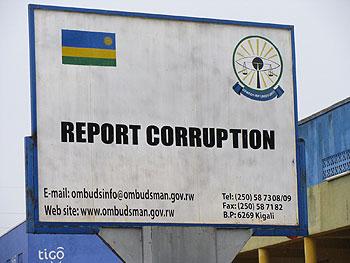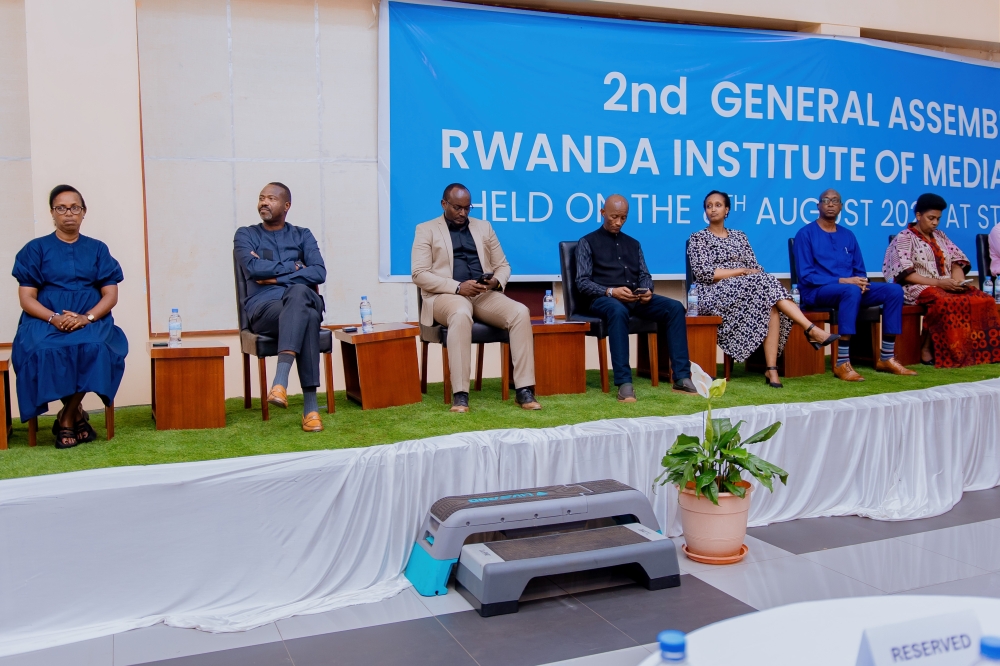The governance index by Transparency International for the last couple of years has ranked Rwanda among the least corrupt countries in Africa.


The governance index by Transparency International for the last couple of years has ranked Rwanda among the least corrupt countries in Africa.A peek into the scope of governance in the country shows tough measures have been put in place to ensure zero tolerance to corruption, but one wonders how doable and plausible it is for Rwanda to achieve its dream and sustain it in the face of neighbouring countries, where corruption and economic stagnation is at peak.In neighbouring countries, the Democratic Republic of Congo (DRC), Kenya, Uganda, Burundi and Tanzania, graft appears to have evolved into a culture that is ‘consumed’ with impunity.A report released late last year by the global anti-corruption watchdog showed Rwanda’s consistent track record in the fight against corruption among the five countries in the East African Community (EAC) region.The survey ranked Rwanda as the third least corrupt African country, first in the EAC, and 50th in the world, jumping one position from fourth in 2011 and dropping one position from 49th to 50th position at the global level.Cape Verde topped the list of least corrupt African countries with a score of 60 out of 100, and the country is on 39th position globally, followed by Mauritius on 43rd position with 57 scores, and Rwanda in the third position.The East African Bribery Index 2012 launched in Kampala last year ranked Rwanda the least corrupt country, followed by Tanzania, Kenya, in second and third positions, respectively, Burundi was fourth and Uganda trailed. Rwanda has a bribery aggregate index of 2.5 percent. Burundi, the worst ranked country in 2011, recorded a significantly lower index of 18.8 percent, Kenya and Tanzania were 29.5 percent and 39.1 percent, respectively, while Uganda registered the highest bribery levels in the region with a percentage value of 40.7 percent.Speaking to The Sunday Times yesterday, Marie Immaculee Ingabire, the chairperson of Transparency Rwanda (TR), said her body has come up with a work plan for this year that includes nationwide anti-corruption public awareness and sensitisation campaigns for specific targeted groups."We have put in place mechanisms to have zero tolerance to corruption, but we face challenges from the people who cover up for others in the cases of corruption and courts which are reluctant or ignore to cooperate with us,” she said.Ingabire said it was still a big challenge to Rwanda to have zero tolerance to graft due to her neighbours that have maintained a track record of highest bribery levels."We need to harmonise our strategies and roles towards fighting corruption in the region, especially in trading policies, because as we integrate, graft will also take its course once our neighbouring countries don’t address it,” she stated.The TR 2011 report showed the likelihood of encountering bribery occurrences at 1.19 percent, the prevalence of bribery at 0.8 percent and the average size of bribery was Rwf 19,844.TR regularly, on an annual basis, carries out the Rwanda Bribery Index to determine the extent of corruption in the country.However, Kenya has the highest number of reported fraud cases compared to her EAC neighbours, and most fraud in Kenya targets government and financial sectors.Unlike Rwanda, in countries such as Uganda, Burundi and DRC, there is lack of strong political will in the war against corruption and zero tolerance to corruption, despite the countries’ leaders on several occasions pledging to stamp out it.The reason why countries such as Cape Verde and Mauritius have maintained a leading record in the graft fight on the continent is because of tough measures adopted by the countries in the struggle for good governance, the control of public finances and the fight against graft which are clear to the public.In those countries, there is an ‘ethical imperative’ that obliges political office holders to manage public resources well and exclusively for the common good.Sheikh Khalfan Omar Bizuru, a lecturer of Political Science at the National University of Rwanda, says it is not that the regional countries have failed to stamp out corruption, but lack of strong political will to implement their measures against the monster is still a challenge."Rwanda finds herself in a challenging situation to achieve ‘zero tolerance to corruption’ if her neighbours don’t put in more efforts to fight it,” he said.Bizuru stated that it was necessary for Rwanda’s neighbours to ensure more transparency in public and private sectors to get rid of graft and as well as at the various levels of the hierarchy.




